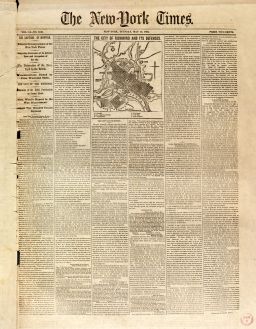
The American Civil War was a tumultuous period that strained the loyalties and reputations of many Northern leaders. While most officers and officials remained committed to preserving the United States, there were instances when newspapers and critics accused them of committing treason. Some accusations appear trivial, but the contemporary media cast aspersions to sell papers. Several prominent Northerners were accused of being traitors, and others used charges of treason to deal with those considered to be harming the war effort.
General George B. McClellan
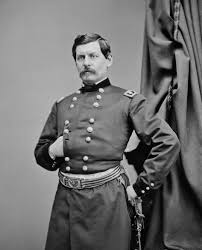 George B. McClellan faced accusations of treason for his perceived reluctance to aggressively pursue the Confederate forces and his contentious relationship with President Abraham Lincoln.
George B. McClellan faced accusations of treason for his perceived reluctance to aggressively pursue the Confederate forces and his contentious relationship with President Abraham Lincoln.
McClellan’s cautious approach to warfare, coupled with his differences in strategic vision with Lincoln, led to suspicions about his loyalty. This included assertions by Major John M. Key that there was a deliberate effort to create a stalemate. Critics argued that McClellan’s hesitance hindered the Union’s efforts to crush the rebellion. However, there is no concrete evidence to support allegations of treason, and McClellan maintained that his intentions were solely focused on preserving the Union.
General John C. Frémont
General John C. Frémont was accused of treason when, as commander of the Western Department, he issued a controversial emancipation proclamation in Missouri without proper authorization.
Although Fremont was court-martialed in 1848 on an accusation of treason, he was found not guilty. Frémont’s unilateral emancipation order exceeded his authority and provoked outrage from both pro-Union and pro-slavery factions. Although President Lincoln later annulled the proclamation, Frémont’s actions sparked accusations of undermining the federal government. His intentions, however, were to weaken the Confederacy by denying it slave labor rather than committing treason.
Clement Vallandigham and the Copperheads
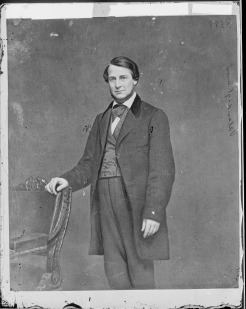
The Copperheads were a faction of Northern Democrats who opposed the war and advocated for a negotiated peace with the Confederacy. Led by figures such as Clement Vallandigham, a former Congressman from Ohio, and Horatio Seymour, the governor of New York, the Copperheads faced accusations of treason for their outspoken opposition to President Abraham Lincoln’s administration.
Major General Ambrose Burnside was at one time the commanding general of the Department of the Ohio. On April 13, 1863, Burnside instituted General Orders No. 38 to eliminate all support of the Confederacy in his Department. General Orders No. 37 included the following language:
“The habit of declaring sympathy for the enemy will not be allowed in this department. Persons committing such offenses will be at once arrested with a view of being tried. . .or sent beyond our lines into the lines of their friends. It must be understood that treason, expressed or implied, will not be tolerated in this department.”
Vallandigham was arrested and convicted of violating General Order No. 38, which prohibited the expression of disloyal sentiments, and he was subsequently banished to the Confederacy.
New York City Draft Riots
New York City’s leaders were sympathetic to the South because of business dealings before the war, leading to the metropolis being labeled “Treason City,” In July 1863, New York City experienced one of the most violent episodes of the Civil War when the draft was instituted. The draft riots that ensued were characterized by widespread violence, property destruction, and attacks on African Americans. While these riots were primarily driven by opposition to conscription and racial tensions, some accused prominent individuals of supporting or inciting the violence.
Democratic politician Fernando Wood, the former mayor of New York City, was among those who faced
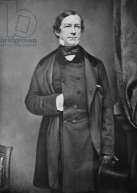
accusations of encouraging the rioters, although he denied any direct involvement. Wood was highly critical of the Lincoln Administration. In the words of historian Ernest A. McKay:
“Fernando Wood, always walking a fine line between loyalty and treason, intended to make himself heard at the state and national conventions.”
Self-promotion was no doubt the reason for what appeared to be treasonous words.
Horatio Seymour, the Democratic governor of New York, was a vocal critic of Lincoln’s 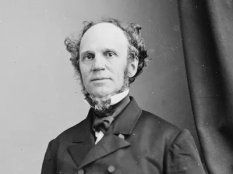 administration and its handling of the war. While he did not openly advocate for secession, his opposition to federal policies, including the draft, led some to accuse him of undermining the Union war effort. Seymour’s efforts to secure a negotiated peace with the Confederacy also drew criticism and accusations of treason, although he was not formally charged or arrested.
administration and its handling of the war. While he did not openly advocate for secession, his opposition to federal policies, including the draft, led some to accuse him of undermining the Union war effort. Seymour’s efforts to secure a negotiated peace with the Confederacy also drew criticism and accusations of treason, although he was not formally charged or arrested.
Accusations of treason against Union leaders and prominent Northerners during the American Civil War were often rooted in political disagreements, opposition to federal policies, or perceived disloyalty to the Union cause. While some individuals faced legal consequences, others managed to avoid formal charges. The tumultuous nature of the era, marked by deeply divided loyalties and fierce political debates, contributed to the suspicion and accusations that arose during this pivotal period in American history.
